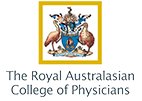Colonoscopy Specialist in Brisbane
What is a Colonoscopy - Clearing up misunderstandings
Ask ten different people about colonoscopies, or ‘having a scope’, and you will likely get ten different ideas on what one is like. You may hear some horror stories on what people think they are like from the idea of one or based on television, with concerns about pain and discomfort. Thankfully, if you ask anybody with real-world experience, you are likely to get a much different picture.
A colonoscopy is a procedure to examine the internal aspect of the colon, rectum and often the last few centimetres of the small intestine. Specifically, it is a procedure where a flexible tube with a tiny camera is used to check the insides of the bowel, from the back passage, for any abnormalities. It can also be used to treat these abnormalities in some cases. During a colonoscopy, a long, flexible tube (colonoscope) is inserted into the rectum. A tiny video camera at the tip of the tube allows the doctor to view the inside of the entire colon.
Understandably, if this procedure were to be performed awake, it would be an uncomfortable experience to say the least. Modern colonoscopy procedures are, thankfully, performed under light or even total sedation with a wide variety of supportive therapies at hand. This allows procedures to be custom tailored to your unique situation, up to and including being completely asleep for the procedure.
Most commonly, colonoscopy is performed under deep sedation administered by an anaesthetist. This ensures the most comfortable overall experience, as you will be asleep for the actual procedure but breathing by yourself. The procedure itself may take 20-30 minutes, but a short stay in hospital is required in most cases, with most people being discharged home on the same day.
Purpose of a Colonoscopy
Colonoscopies are performed for a wide variety of reasons. Three of the most common reasons they may be required are:
- Excluding or treating cancer.
- Identifying causes of bleeding in the lower gastrointestinal tract
- Diagnosis of inflammatory bowel syndromes
A colonoscopy is an extremely useful procedure as it is able to both diagnose a wide range of conditions – identify and confirm anything out of the ordinary – and treat many of them as well.
For example, if a colonoscopy is being performed to look for bleeding in the large intestine, in many cases the same tool can be used at the same time to treat the cause of the bleeding. The ability to not only accurately find a problem but to fix it at the same time make colonoscopies the gold standard in many conditions.
If necessary, polyps or other types of abnormal tissue can also be removed through the scope during a colonoscopy. Tissue samples (biopsies) can also be taken during a colonoscopy, these being used to confirm conditions such as ulcerative colitis and other inflammatory bowel conditions.
Dr Nanda may recommend a colonoscopy to:
- Investigate lower intestinal symptoms or signs, or rectal bleeding.
- Screen for bowel cancer in patients at risk or concerned about their risk
- Survey a known condition (such as ulcerative colitis)
- Treat a known condition (e.g. removal of a polyp, placement of a stent)
Colonoscopy Risks and Benefits
Colonoscopy is a low risk, minimally invasive procedure.
It is considered a very safe procedure, even by modern standards, and almost a million are performed yearly in Australia alone. They are performed in a specialist setting with immediate access to high quality medical care. As with any procedure, rare complications may occur, and include:
- Bleeding: this may occur from the site where a biopsy is taken, or where abnormal tissue is removed. Major bleeding requiring treatment is rare, but care is always on hand just in case.
- Perforation: This is where a tear occurs in the wall of the colon or rectum wall. This is very uncommon (less than one in a thousand), but it can be serious and needs surgery to correct.
- Minor complications: such as transient abdominal pain, bloating, fainting, or minor bleeding can be more common (1:20) but generally resolve quickly.
Having an experienced specialist perform your colonoscopy is one of the best ways to reduce the risks of a colonoscopy.
When considering any procedure, the benefits need to be weighed against the risks. Colonoscopy is an accurate test for conditions of the large intestine, including the detection of colorectal cancer, polyps and Inflammatory bowel disease, with a sensitivity greater than 95% (meaning it is highly accurate at ruling out certain conditions). This makes it not only a useful diagnostic tool for patients with symptoms, but beneficial in anyone at risk of these diseases not yet showing symptoms.
All surgery carries a degree of risk, so having a qualified proceduralist perform this operation helps increase the chances of a good outcome.
Dr Nanda has specialist interest in inflammatory bowel disease, having qualifications from the Gastroenterological Society of Australia, the American Gastroenterological Association, the Royal Australian College of Physicians and the European Society of Gastrointestinal Endoscopy as well as being senior lecturer at the University of Queensland.
For advanced specialist care, the most up-to-date procedures and long-term support, book an appointment with Dr Nanda today.
If you have any concerns about your own risk of intestinal conditions, symptoms or ongoing gastrointestinal illness, don’t hesitate to contact Dr Nanda for specialist and personalised care.
St Andrew's Sessional Suites
Level 6, Suite 5
St Andrew's War Memorial Hospital
457 Wickham Terrace
Spring Hill, QLD 4000
Phone: 07 3554 0282
Fax: 07 3539 9811
Email: admin@drknandagastro.com.au
Opening Hours:
Monday to Friday, 8:30 AM-4:30 PM
Mater Private Hospital Brisbane
301 Vulture Street
South Brisbane, QLD 4101
Phone: 07 3554 0282
Fax: 07 3539 9811
Email: admin@drknandagastro.com.au
Opening Hours:
Monday to Friday, 8:30 AM-4:30 PM




